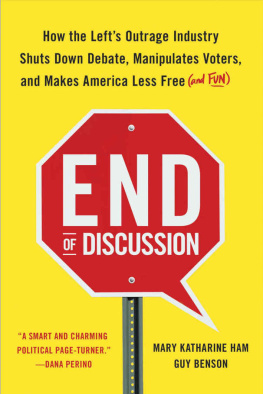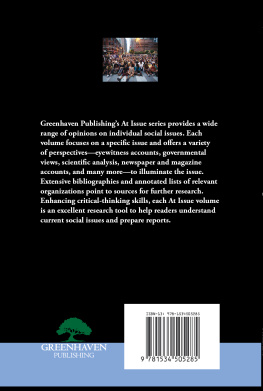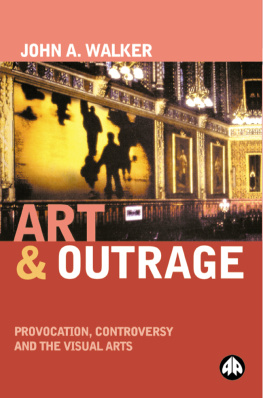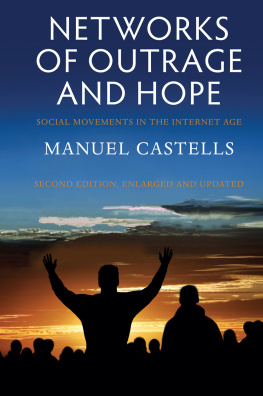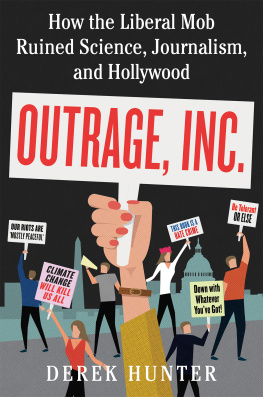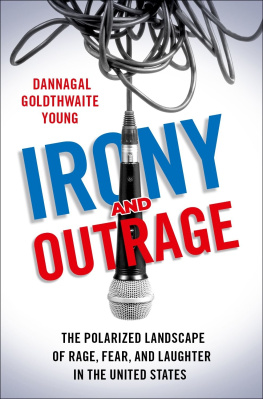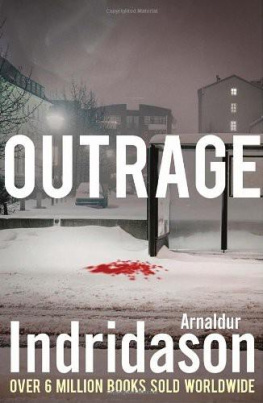G reetings, friends, acquaintances, fellow conservatives, curious liberals, and people who feigned gratitude upon receiving this book as a gift from a right-wing relative! Welcome to our conversation about Americas dysfunctional national conversation. Before we dive right in, we want to begin by thanking you for (theoretically, at least) caring about how we as Americans debate issues and exchange ideas. If youre on the conservative end of the political spectrum, we suspect that youll agree with much of what youll read over the next three hundred or so pages, but fair warning: you will almost certainly object to some of our analysis and may even find yourself shaking your head in disbelief at some of the people we cite in a positive context. Feel free to keep a running list of our RINO (Republican in Name Only) apostasies and enumerate them in an angry e-mailbut please try to commit to at least finishing the book prior to clicking send.
All right. Lets do this.
HEAD EXPLOSIONS
Y oure perched in front of your laptop, eyes boring holes into the screen. A familiar, uneasy feeling swells inside you. Moments ago, you logged in to Facebook, where a gray-lettered prompt in small font beckoned you with four innocuous words: Whats on your mind? Something is on your mind, as it happens; it pertains to a viral national controversy, and a lot of people in your feed have been buzzing about it. Youve entered a few sentences reflecting your opinion into the status field, and now youre anxiously eyeing the post icon. One click, and your take will officially be on the record, permanently. Sure, theres an edit button, and a delete function, but the Internet is forever. Youve posted hundreds of statuses before, accumulating countless likes and sparking a handful of debates, but this time feels different.
The hot story du jour is fraught withlets call them sensitivities. A significant number of people in your friend orbit arent going to agree with your minicommentary. Thats fine with you, in theory, but youre increasingly aware that disagreement of this type may not end well. Youve seen it happen: angry comment flame wars erupt, friendships are strained or dissolved, heavy-duty names are called, and motives are impugned. HR departments have even gotten involved on occasion.
Heres the thing: you dont want to be lumped into the bad person campa fate that awaits those who fail to convey the proper feelings on a matter of public debate. Youre confident you dont deserve it, and you know what is, and is not, in your heart. But other people might not, and some wont care. They might seize on a word or a sentence fragment in your post, and things could spiral from there. Posting a selfie, or a music video, or that adorable photo of your dog is far less likely to get ugly (one doesnt typically get called a bigot posting about ones puppy), so you select the text youve entered and trash it. Its just not worth it. You click away from the page and move on.
A growing number of Americans are beginning to sense an insidious strain of self-censorship in themselves, either explicitly or subconsciously. You find yourself keeping your mouth shut about controversial issues like gay marriage or so-called womens issues because youd rather not suffer the social costs of being cast as the enemy by the increasingly aggressive thought police. They have enforcers everywhereat the office, at dinner parties, and all over the media. This silencing impulse isnt born out of normal or healthy self-reflection and restraint; it arises out of fear. Nor is it part of a free societys natural process of discarding truly pernicious ideas after open discussion, making marginalization the rightful cost of losing to better arguments. Instead, outrage mongers turn this process on its head, disqualifying ideas without debate instead of after debate.
The fear to speak is cultivated by people who actively work to raise the social cost of engaging publicly on any number of issues. We call them the Outrage Circus. They are highly ideological, often deeply partisan, and relentless in their vigilance, ever on alert to name and shame violators of their approved order. Once youve violated one of their capricious and fluid ruleseven unwittinglymalice is attributed, and restitution is demanded. Nothing short of full, professed repentance shall suffice.
But sometimes even that is not enough, as the relentless, pedantic hall monitors of our discourse often see fit to exact economic costs for perceived social transgressions. Think or express the wrong ideas, and theyll come after your livelihood. Play the wrong Top 40 hit at a club? Pink slip for you, as one college DJ found out in North Carolina. Uncomfortable with hosting a same-sex marriage ceremony in your own home? Thatll be a $13,000 fine, as a couple with a small business in New York discovered. Display the wrong piece of modern art on an American campus, and youll bring scandalized activists and professors down on you, as Tony Matelli realized when his realistic tighty-whitey-clad statue

